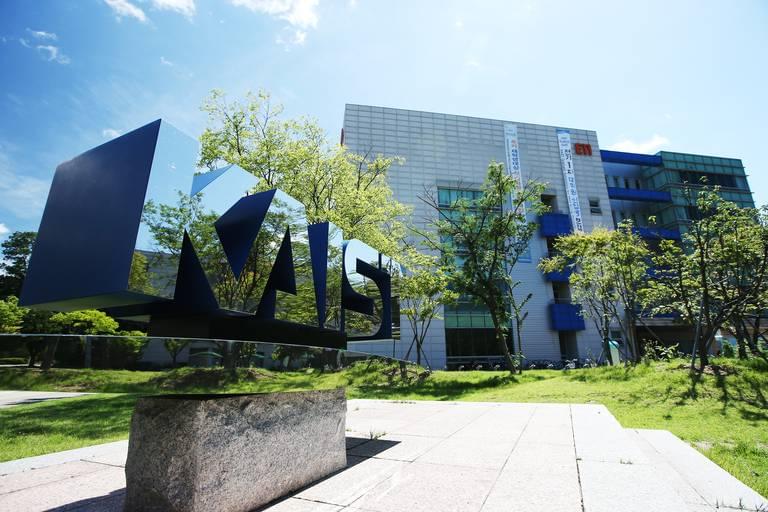This is a ~18 min talk plus ~10 min Q&A on a top-down approach to bioengineering and robotics that I gave at the Biohybrid Robotics Symposium in Switzerland in July 2025 (https://biohybrid-robotics.com/).
Category: robotics/AI – Page 25
Stephen Wolfram on AI, human-like minds & formal knowledge
Want more on knowledge hypergraphs? Sign up for my newsletter at Open Web Mind https://www.openwebmind.com/newsletter/ or subscribe to my YouTube channel htt…

Korean researchers develop energy-efficient NPU technology that cuts AI cloud power consumption by 44%
Researchers at the Korea Advanced Institute of Science and Technology (KAIST) have developed energy-efficient NPU technology that demonstrates substantial performance improvements in laboratory testing.
Their specialised AI chip ran AI models 60% faster while using 44% less electricity than the graphics cards currently powering most AI systems, based on results from controlled experiments.
KAIST researchers develop energy-efficient NPU technology that runs AI models 60% faster while using 44% less power than current GPU systems.

New ultra-secure SSD can self-destruct to protect sensitive data
This message will self-destruct in 3… 2… 1 is something you’ve definitely seen in Mission: Impossible films over the years.
Now, we finally have tech that feels just as futuristic, thanks to a new kind of storage hardware.
Taiwanese company TeamGroup has unveiled a new internal SSD that can literally destroy itself at the press of a button, ensuring sensitive data never falls into the wrong hands.
The device, called the P250Q-M80, is aimed at sectors where top-tier data security isn’t just a perk, it’s a necessity. We’re talking defense, industrial automation, AI development, and maybe even the crypto wallet you hold.
TeamGroup showcased the drive at Computex 2025, where it took home a Best Choice Award in the cybersecurity category.
This Robotic Hand’s Electronic Skin Senses Exactly How Hard It Needs to Squeeze
The hand could lead to advanced prosthetic hands for amputees or robots with the dexterity and strength to perform household task.
Wriggling robot worms team up to crawl up walls and cross obstacles
The slimy, segmented, bottom-dwelling California blackworm is about as unappealing as it gets—but get a few dozen or thousand together, and they form a massive, entangled blob that seems to take on a life of its own.
It may be the stuff of nightmares, but it is also the inspiration for a new kind of robot. “We look at the biological system, and we say, ‘Look how cool this is,’” said Senior Research Fellow Justin Werfel, who heads the Designing Emergence Laboratory at the Harvard John A. Paulson School of Engineering and Applied Sciences (SEAS). Werfel is hooked on creating a robotic platform that’s inspired by a wriggling ball of blackworms and that, like the worms, can accomplish more as a group than as individuals.
Recently garnering a Best Paper on Mechanisms and Design award at the IEEE International Conference on Robotics and Automation, the Harvard team’s blackworm-inspired robotic platform consists of soft, thin, worm-like threads made out of synthetic polymer materials that can quickly tangle together and untangle.

What is the Church-Turing Thesis?
Modern-day computers have proved to be quite powerful in what they can do. The rise of AI has made things we previously only imagined possible. And the rate at which computers are increasing their computational power certainly makes it seem like we will be able to do almost anything with them. But as we’ve seen before, there are fundamental limits to what computers can do regardless of the processors or algorithms they use. This naturally leads us to ask what computers are capable of doing at their best and what their limits are. Which requires formalizing various definitions in computing.
This is exactly what happened in the early 20th century. Logicians & mathematicians were trying to formalize the foundations of mathematics through logic. One famous challenge based on this was the Entscheidungsproblem posed by David Hilbert and Wilhelm Ackermann. The problem asked if there exists an algorithm that can verify whether any mathematical statement is true or false based on provided axioms. Such an algorithm could be used to verify if any mathematical system is internally consistent. Kurt Gödel proved in 1931 that this problem could not be answered one way or the other through his incompleteness theorems.
Years later, Alan Turing and Alonzo Church proved the same through separate, independent means. Turing did so by developing Turing machines (called automatic machines at the time) and the Halting problem. Church did so by developing lambda calculus. Later on, it was proved that Turing machines and lambda calculus are mathematically equivalent. This led many mathematicians to theorize that computability could be defined by either of these systems. That in turn caused Turing and Church to make their thesis: every effectively calculable function is a computable function. In simpler terms, it states that any computation from any model can be carried out by a Turing machine or lambda calculus. To better understand the implications of the Church-Turing thesis, we need to explore the different kinds of computational machines.

AI Is Heading For an Energy Crisis That Has Tech Giants Scrambling
The artificial intelligence industry is scrambling to reduce its massive energy consumption through better cooling systems, more efficient computer chips, and smarter programming – all while AI usage explodes worldwide.
AI depends entirely on data centers, which could consume three percent of the world’s electricity by 2030, according to the International Energy Agency. That’s double what they use today.
Experts at McKinsey, a US consulting firm, describe a race to build enough data centers to keep up with AI’s rapid growth, while warning that the world is heading toward an electricity shortage.
